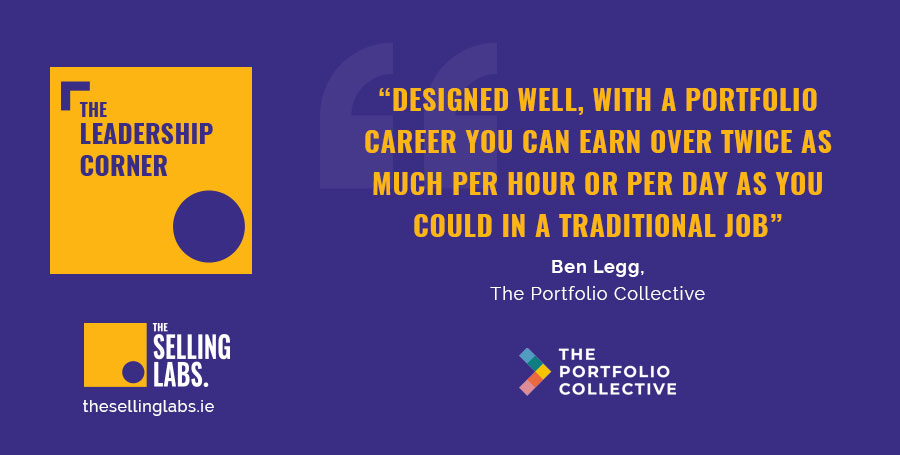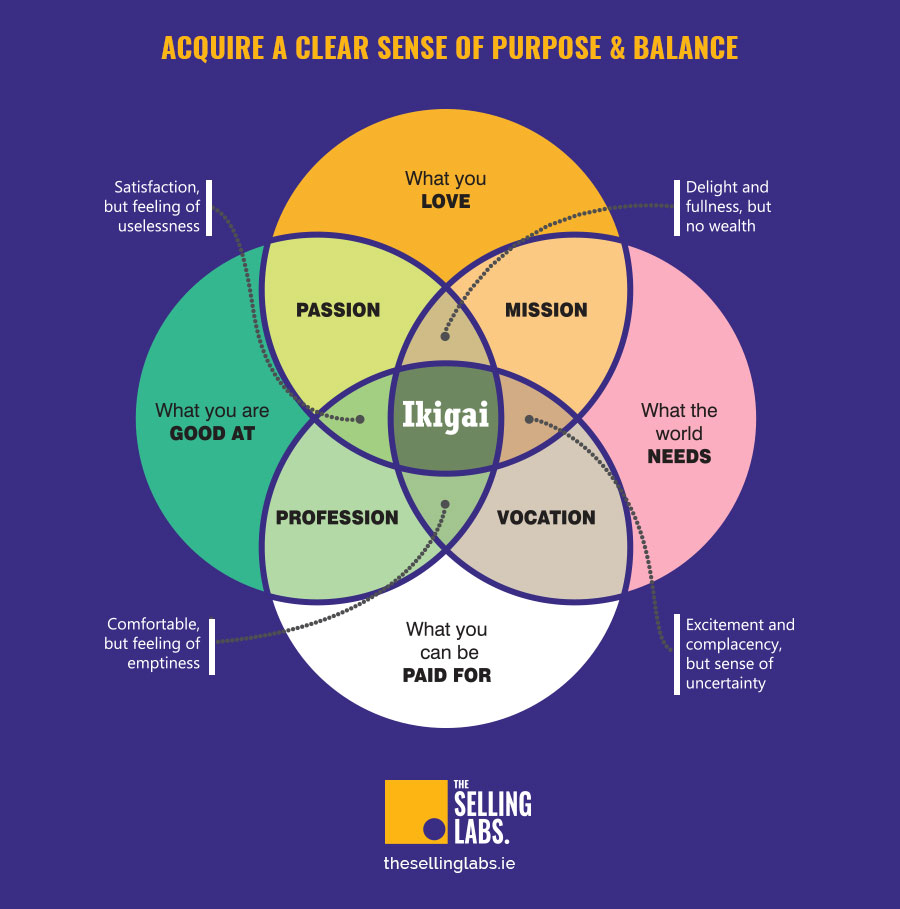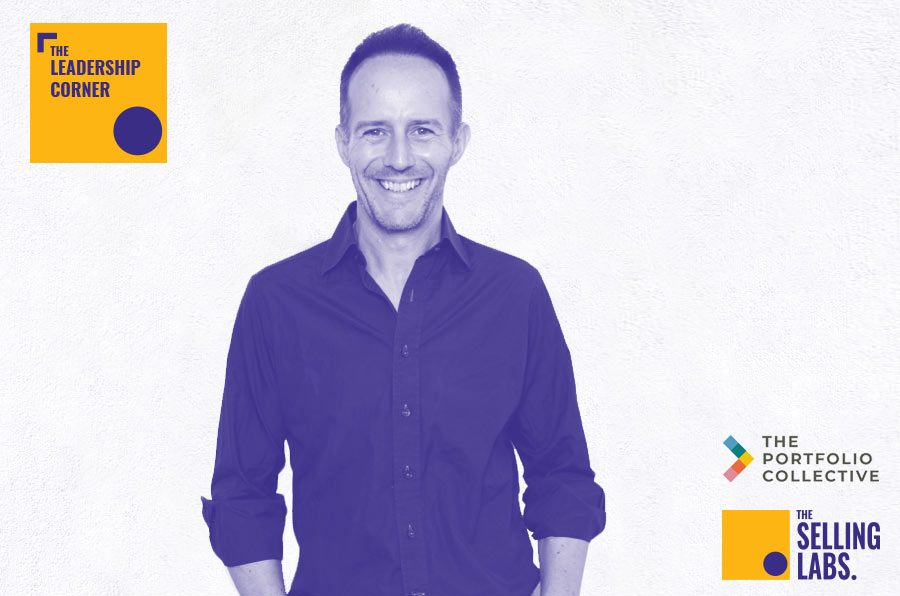The idea of the portfolio career, of tailor-making your own service offering to meet a specific challenge, is gaining momentum in today’s world as people’s skills and abilities broaden, and previously inaccessible technologies become easier to use for more and more of us. You may be thinking that you have a lot more to offer than your current role allows and feel the time has come to make the change? We caught up with Ben Legg, an expert in the field of portfolio career management, and here he offers some sound advice for those interested in broadening their horizons.
1. What is a portfolio career and why is it worth our readers considering?
Ben Legg: A client of ours splits her time as a lawyer, a career coach and a circus performer. She gets to balance the things she’s good at with the work she’s passionate about! She is a great example of a portfolio career where you can create multiple income sources from a variety of skills and consequently portfolio careers are what you make them.
You can build a portfolio as a freelancer in which you do work that companies and individuals outsource, or become a focused expert as a global thought leader, thereby proactively shaping your impact on your industry. You can even juggle several diverse work streams at the same time as a multi-hyphenate.
Some people prefer to stay in full-time employment but launch a side-hustle, which is a great way to earn extra cash doing something you love, while learning to become a portfolio professional.
One of the reasons portfolio careers are becoming popular is that they can be both flexible and lucrative. Designed well, with a portfolio career you can earn over twice as much per hour or per day as you could in a traditional job. This is because you can charge more when you have specialist knowledge and skills. Then with the recent developments in virtual connectivity, portfolio professionals can find clients anywhere in the world.

2. Who can benefit from a portfolio career and at what career stage?
People at all career stages can consider a portfolio career. A typical path is for professionals to do some time in a corporate role, learn more about themselves and their industry, then to go independent and launch a portfolio career. However, we want to change that behaviour, inspiring and supporting people of all ages to consider being a portfolio professional. Even those straight out of university can build up their own business with the right guidance and set of specialised skills.
The most important thing is developing some form of unique skill or service to offer. Whether that’s something creative like graphic design or photography, or something more specialised like business transformation and sustainability – there’s sure to be potential clients out there in need of what you do.
3. What does the Portfolio Collective do to help people who might be considering taking this career direction?
The main pillar of The Portfolio Collective is our community – as portfolio professionals we learn together, support/ challenge each other and collaborate for work. Portfolio careers can be lonely, but when you’re part of a community like The Portfolio Collective, you are never alone. You have other people to hold you accountable, brainstorm, give you feedback, mentor and celebrate wins.
The other pillar of our business is learning. Our Catapult course is designed to help people through the process of developing an ever stronger portfolio career. This is relevant for both newcomers and seasoned professionals, because you have to keep reinventing yourself, or risk being commoditised. We offer courses in career strategy, personal branding, building your web presence, landing work and much more. The blend of online learning and live sessions creates a flexible, human experience, which has yielded some truly astounding results for our members. Aside from that, we host a range of weekly workshops, free fireside chat events and community networking, all of which are completely virtual and based around user feedback and industry trends.
4. What is IKIGAI?!
Ikigai is a huge driving force behind why a lot of people make the shift into the portfolio lifestyle. It’s a Japanese framework designed to help you find the intersection between what you’re good at, what you love, what the world needs and what you can get paid to do. Roughly translated, it’s a clear sense of purpose and balance. The place where all those things overlap is where you find the most meaning, and that’s so important when it comes to your career because it’s a defining part of your life.

5. What great leaders have you worked with during your career? Any sponsors or mentors of note?
I had many great mentors and role models in my early career – from the army to McKinsey and including the founders of Google. As a portfolio professional I have also learned loads from other successful portfolio professionals. Before forming The Portfolio Collective, this would take the form of coffee/ beers with other portfolio professionals to learn from each other about how to find work, how much to charge, how to help startups raise money, how to get the most out of LinkedIn and much more. Many of those successful portfolio professionals became founding members of The Portfolio Collective, as a recognition of their insights and generosity.
A big call out to Matt Sutton – who used to be the CEO of Adknowledge Asia and is now a portfolio professional and founding member of The Portfolio Collective.
6. What advice do you have for SMBs who are trying to either establish themselves or increase users/customers/revenue?
The best advice we can give is to really understand your customers and their needs, then ensure that you tell a differentiated, compelling story about how you will help those potential clients to succeed. A poignant and authentic story – well told – can make the difference when someone is choosing between you and your competitor. Share your values and passions, so that customers will understand you in ways they wouldn’t otherwise have done.
Portfolio Careers on the Horizon
Whilst portfolio careers may seem like a novel concept we here at The Selling Labs think they will become more prominent with time – especially given the benefits outlined above by Ben. If you enjoyed this post make sure you subscribe to our newsletter below so you don’t miss out on future Leadership Corner interviews. If you’d like to get involved as an interviewee, or need help increasing your sales, then get in touch today.
On Expert Sales Tips
Get regular updates delivered straight to your inbox with expert sales tips for tech & SaaS companies. Enter your email below and start to increase your sales now.



